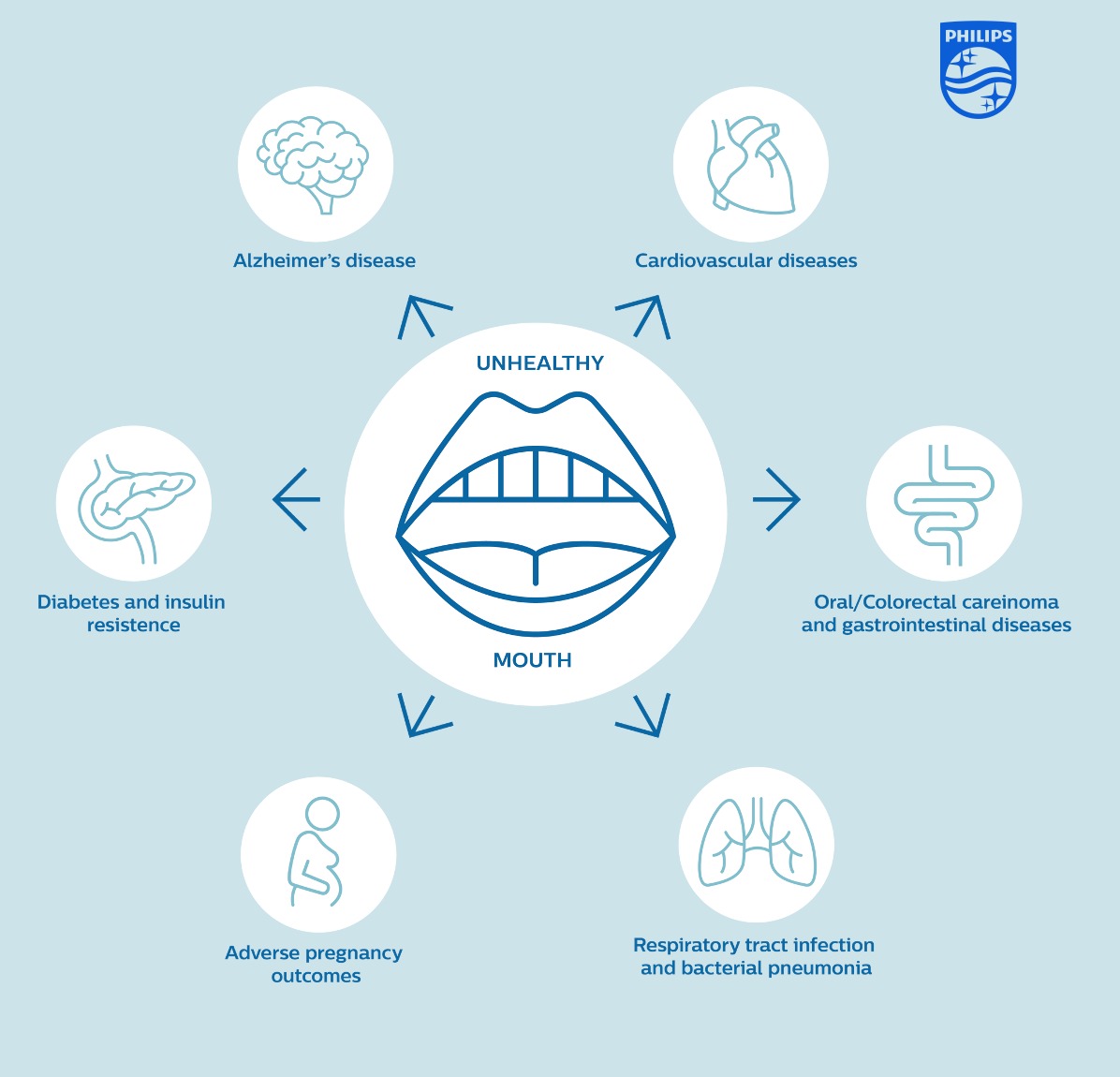Aug 03, 2021
Focusing on prevention is the future of oral healthcare
Early in our lives, we’re taught the importance of maintaining good oral hygiene by brushing our teeth. This is one of the first moments we become personally accountable for our own health, an important milestone on a journey of health prevention.
The connection has never been clearer: Oral health is critical to overall health and wellbeing. Bacteria in the mouth contributes to tooth decay and periodontal disease and there is broad acceptance of links with other health problems. From diabetes and heart conditions to Alzheimer’s and neo-natal health – oral healthcare is a starting point for detection and ultimately an important aspect of prevention across the health continuum. This shared belief is also the cornerstone of Australia’s National Oral Health Plan 2015-2024 – Healthy Mouths, Healthy Lives – which in addition to recognising the impact on an individual’s health, also underscores the impact poor oral health outcomes has on the broader health system and economy.

“Keep your smile for life” is the theme of this year’s Dental Health Week in Australia, which focuses on educating consumers on the importance of maintaining good oral health through preventative health measures, behaviors and lifestyle choices. As a leading health innovation technology company, we are committed to contributing to the understanding of the connections between oral health and overall health, and helping to educate consumers and support dental professionals in their own efforts to provide patients with the tools and knowledge they need. Informed consumers are empowered consumers Today’s modern consumer is more attentive and aware of the role preventative care has on their overall health – evolving from passive healthcare recipients into active health consumers. With this comes a greater responsibility for oral healthcare practitioners, industry leaders and researchers to meet consumers’ needs and support their health goals. A consistent and regular approach to care focused on prevention can help to minimise chances of developing a number of dental conditions, and the education that takes place at a young age plays an important role in creating effective habits. The pandemic has fueled people’s focus on health and wellbeing, and Australians have begun to invest more actively in personal wellness solutions that deliver better long-term health outcomes. As personal care products continue to advance, bridging the gap between at-home and clinical care, dental practitioners have long worked to educate their patients on disease prevention and mitigate the prevalence of chronic conditions through proper dental health practices. Prevention is key According to the Australian Dental Association, roughly 2 in 3 adults usually visit a dentist for a problem rather than a regular check-up. When our oral health is not managed effectively, it can produce a wide range of long-term health consequences. Prevention is the key to achieving more optimal health outcomes for Australians and would also help to alleviate pressure on the health system. The Australian Institute of Health and Welfare reports that between 2017–18, about 72,000 hospitalisations for dental conditions may have been prevented with earlier treatment. These evolve into acute and chronic conditions and annually, these conditions result in an estimated $27 billion in healthcare costs, meaning more than one-third of the national health budget is consumed by delivering critical treatment. To help people stay healthy and enjoy the best possible quality of life, we envision a new health paradigm – one that values health promotion and prevention just as much as treatment, recognising the needs and expectations of the modern health consumer. The opportunity for change Among its many impacts, COVID-19 also has brought new attention to the need for preventative oral health care as patients missed visits during stay-at-home periods, elevating trends in teledentistry and underscoring the importance of consistent home hygiene. We’ve seen the Australian dental sector adapt to this challenge, with the Dental Board of Australia moving to modernise policies around telehealth consultations, and the Australian Dental Foundation launching an entirely new teledentistry platform. Finally, innovative and personalised health technology can also empower consumers with solutions that are tailored and adaptive to their unique needs, motivations, and characteristics. People today want to be more in control of their own health and are more attuned to getting the support and information they need online, from apps, and from connected products. One such example is the new Philips Sonicare 9900 Prestige*, which together with the AI powered Sonicare app, offers enhanced real-time guidance and personalized recommendations to improve brushing habits. This connected system brings the advice of a dental professional into patients’ lives more regularly through app-based feedback loops and teledentistry that takes the guesswork out of oral care for patients by connecting to a smartphone. Paving the way for these technological advancements will further empower dental professionals to support patients in their habits and behavior change. By empowering people to take care of their own health, we will be better able to prevent lifestyle-related diseases, achieve better health outcomes, and ease the burden on the health system. *** The Philips Sonicare 9900 Prestige will be available in Australia in the spring of 2021
About Royal Philips
Royal Philips (NYSE: PHG, AEX: PHIA) is a leading health technology company focused on improving people's health and well-being, and enabling better outcomes across the health continuum – from healthy living and prevention, to diagnosis, treatment and home care. Philips leverages advanced technology and deep clinical and consumer insights to deliver integrated solutions. Headquartered in the Netherlands, the company is a leader in diagnostic imaging, image-guided therapy, patient monitoring and health informatics, as well as in consumer health and home care. Philips generated 2020 sales of EUR 19.5 billion and employs approximately 82,000 employees with sales and services in more than 100 countries. News about Philips can be found at www.philips.com/newscenter.
Topics
Contacts

Sarah Al-Hashimi Brand & Corporate Communications Manager Tel. : +61 (0) 402117768
You are about to visit a Philips global content page
ContinueAuthor
Xialin Lee
General Manager for Personal Health, Australia & New Zealand
You are about to visit a Philips global content page
Continue
